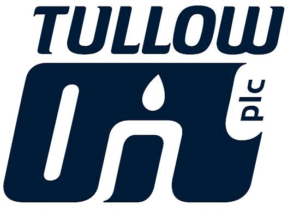The measure has ensured that the sudden fall in the price of crude oil on the world market (from the region of $115 per barrel to $53 per barrel in February this year) would only affect about 45 per cent of Tullow’s oil sale, as it has secured a higher price in its hedge book.
Although prices fell significantly from last year’s average of $100 a barrel price to $53 in March, Tullow’s production cost increased to $10 per barrel.
“We have a hedging programme in place. For this year, it covers 55 per cent of our production which averaged 90,000 barrels a day. This has enabled us to cover some of our production costs,” the Chief Executive Officer of Tullow Oil Plc, Mr Aidan Heavey told pressmen in Accra.
This was during a stakeholders’ forum to help various segments of the company’s publics to understand the business and its plans.
Mr Heavey said the company had a conservative hedging policy which changed according to how conservative the company was in a particular year. For instance, the production hedged would reduce from 55 per cent for next and further down the following year before it would be reviewed again.
Outlook
Tullow, lead operator of the Jubilee field, is also leading production on the Tweneboa, Enyera and Ntomme (TEN) project at West Cape Three Points.
Mr Heavey said the development on the TEN fields was 55 per cent complete and the partners would issue a full development plan to the government by the third quarter of this year.
A second floating production, storage and offloading (FPSO) vessel being manufactured in Singapore would be ready in the first quarter of next year.
Tullow earlier this year changed its 2015 priorities, realigning its expenditure trend with changes in cost structure, as Brent prices fell.
Defence to downsizing
Mr Heavey defended the decision to send home some Ghanaian workers from the company, saying “the business environment has changed significantly and rising costs require deploying all measures to ensure efficiency and remain profitable going forward,” he said.
On whether workers in Ghana should not be spared because the business contributed largely to Tullows’s total global output, the CEO explained that although it was true, the business in Ghana was also funded with funds realised from operations in other parts of the world.
Mr Heavey also said it was important to note that Tullow’s operations in Ghana had also moved from a project phase to a sustainable business, with 25 years minimum production life span for Jubilee alone, hence, some job descriptions and requirements had also changed.




